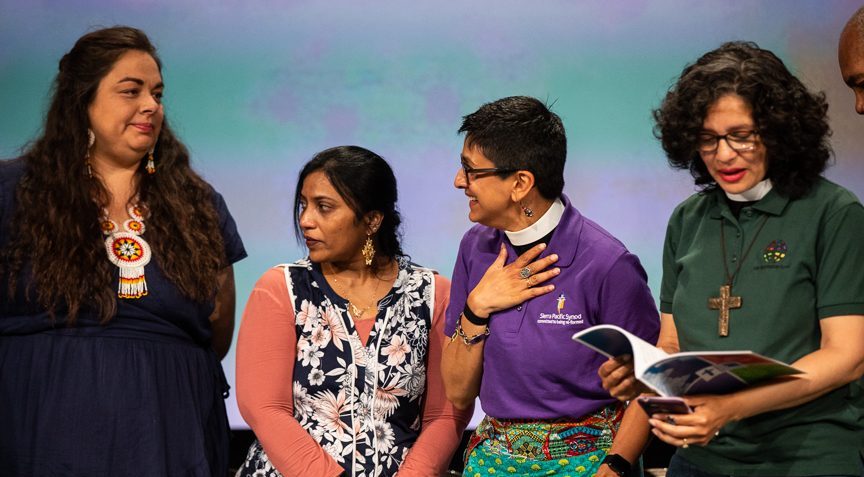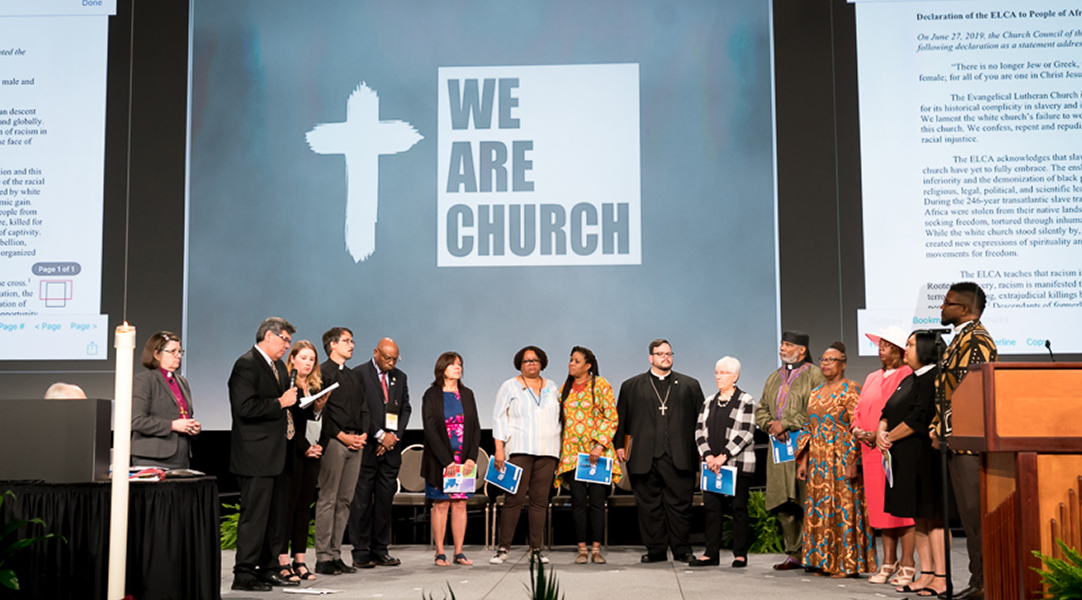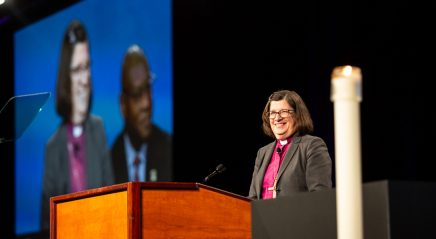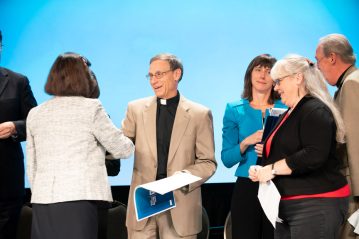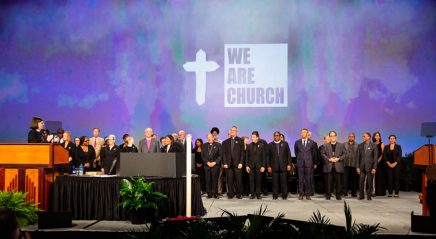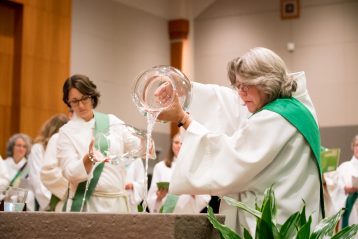On Aug. 9, the ELCA Churchwide Assembly adopted (855-13) the “Strategy Toward Authentic Diversity in the ELCA,” consisting of a report and recommendations on how the ELCA can exhibit, and formulate goals for, authentic racial and ethnic diversity.
The 2016 Churchwide Assembly approved continuing resolutions calling for each of the church’s expressions to annually assess its ethnic and racial diversity “when compared to the demographic data of its community or territory.” The churchwide organization was to work with synods as they assisted congregations in achieving those goals.
The 2016 resolutions also directed the ELCA Church Council to form a task force for strategic authentic diversity to develop a comprehensive set of strategies for equipping congregations and synods in the work of becoming a more authentically diverse church. In April 2019, the task force’s report and recommendations were adopted by the council, which recommended them to the 2019 Churchwide Assembly.
In her introduction to the strategy, task force member Priscilla Austin from the Northwest Washington Synod named the document’s five focus areas, with accompanying recommendations: theological framing and equipping; healing action; structural accountability; theological education; and partnership with full communion, ecumenical and interreligious partners.
“We know that our liberation is bound up in that of each other.”
“Together, these five strategic areas represent the basis of a change of hearts and minds, how we collectively think about ethnic diversity and inclusivity in the ELCA,” she said.
Among the strategy’s recommended actions was to “call upon the Office of the Presiding Bishop, in collaboration with appropriate units in the churchwide organization, to establish and oversee processes for consideration, assignment, implementation of, and accountability for these recommendations identified to the churchwide organization and to report regularly to the Church Council.”
Four voting members spoke in favor of the motion, including Dawn Roginski of the Sierra Pacific Synod, who brought a letter of support from LGBTQIA+ candidates for ELCA rostered ministry. “We know that our liberation is bound up in that of each other,” she said.
Letter of repentance presented
In June the ELCA Church Council adopted a “Declaration of the ELCA to People of African Descent.” On Aug. 6, leaders of the African Descent Lutheran Association were invited to the stage for a presentation from council members and members and staff of the working group that drafted the letter of repentance for the church’s complicity in slavery and “the ELCA’s perpetuation of racism.” The Office of the Presiding Bishop will identify a Day of Repentance for congregations, synods and the churchwide organization to observe annually.
The declaration was offered by members of the working group established by the ELCA Church Council to develop a document that expresses a confession of the church’s bondage to the sins of slavery, racism, discrimination, white supremacy and quietism, and begins the work of repentance, which the ELCA confesses to be “the chief topic of Christian teaching.”
“This recommitment … means praying for the renewal of this church as disciples of the living Christ.”
“This apology is a recommitment to the process of right and equitable relations within this church, and the flourishing of Christ’s church universal,” Elizabeth Eaton, presiding bishop of the ELCA, said after the declaration was read. “This recommitment means working toward a deeper understanding of slavery and its legacy, of institutional and structural racism, of white privilege, and of attitudes and foundations of white supremacy. It means praying for the renewal of this church as disciples of the living Christ.”
In reply, Lamont Wells, president of the African Descent Lutheran Association, said, “We must abandon our lust for oppressive power, wealth and even our own comfort for the sake of fulfilling God’s fulfillment to love others. Throughout history, people have been hurt by this very particular sin. Therefore, we the people of African descent of the Evangelical Lutheran Church in America can receive this apology as a divine mark of repentance that serves as a catalyst for change. We cannot receive this apology simply as a cheap indulgence to clear the conscience of our oppressors.”



